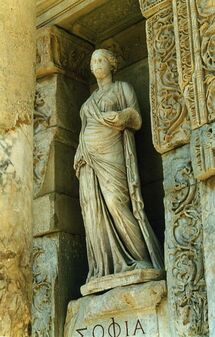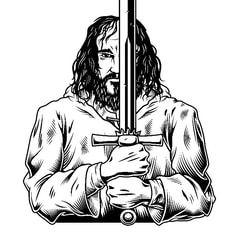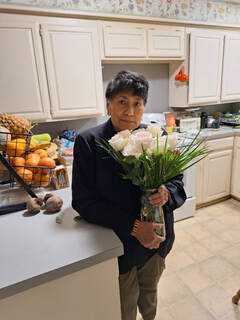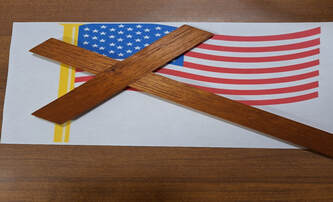|
https://www.pexels.com/photo/standing-family-near-fireplace-1648387/ New York Yearly Meeting publishes the following advice:
Remembering the tenderness of Jesus for children, we recommend that parents and those who have the important charge of educating youth exercise a loving and watchful care over them. Meetings are urged to help parents and children share religious experiences at home and in the meeting for worship and to give them an understanding of the principles and practices of Friends. So, according to NYYM, the family is of paramount importance to Friends. The family is the means by which Quakerism is passed on to children; and, by implication, the family is the basis of a better society based on “the principles and practices of Friends. Also, by implication, Jesus is seen as a promoter of these family, Quaker values. But was the historical Jesus a defender of family values? After all, Jesus is reputed to have said, “If anyone comes to me and does not hate father and mother, wife and children, brothers and sisters—yes, even their own life—such a person cannot be my disciple.” (Luke 14:26, NIV) Fact is, Jesus expected the imminent coming of a supernatural Kingdom of God which would supplant the family. Thus, the ties of father and mother with children were not of ultimate importance. Jesus even had conflicts with his own family, who apparently thought his ministry was evidence of insanity. Once, when his family was gathered outside a crowded house, wanting to come in to see him, Jesus remarked, “Who is my mother, and who are my brothers?” ‘Pointing to his disciples, he said,’ “Here are my mother and my brothers. For whoever does the will of my Father in heaven is my brother and sister and mother.” (Matthew 12:48-50, NIV) It's a well-known fact that many Quaker social activists place social reform ahead of time and effort spent with their own family. Is this not the true Quaker way, a way advocated by Jesus himself? Maybe not. At least it may not be the Quaker way. After all, Friends do not usually expect the imminent appearance of a supernatural Kingdom of God. Failing this belief, believing rather that society is going to persist for the foreseeable future, is it not incumbent for Friends to foster a strong family? I think that this is a matter of debate among us. Perhaps some are called to be social activists who put family in second place, and others are called to concentrate on family values. I think this may be the solution to the problem. ~ Richard Russell
1 Comment
https://www.pexels.com/photo/blue-and-red-dress-religious-man-illustration-767276/ The Gospels of Matthew, Mark, and Luke certainly portray Jesus in conflict with Jewish groups like the Pharisees and the Sadducees, but John gives us a blanket condemnation of the Jewish people. He repeatedly refers to “the Jews” as Jesus’ opponents. In each of the other Gospels, this global, pejorative term is only used five or six times, but John mentions “the Jews” some seventy-one times. And according to John, “the Jews” are responsible for Jesus’ crucifixion and death.
The explanation for John’s anti-Jewishness can be found in a linguistic and sociological analysis of the community that produced the Gospel of John. Modern scholars have determined that John’s Gospel is a compilation of various oral traditions and documents. Parts of John display an older, “low” Christological tradition in which Jesus is referred to as “the lamb of God,” “rabbi,” or even “messiah,” none of which include the notion of divinity. A rabbi, for example, is a teacher; and the messiah is a human being, chosen by God to rule his people Israel. Other, later sources in John evince a “high Christology,” which identifies Jesus with God. So, for example, John has Jesus say, “Truly, truly I say to you, before Abraham was, I am.” (NIV) “I am” is, of course, a circumlocution for “God.” Jesus is saying that he is divine, an assertion for which “the Jews” want to stone him when he makes this claim. Scholars have hypothesized that the older, Christological passages must have come from a Jewish community in which Christian Jews were a minority. Christians are, of course, notorious for proselytizing. As the Christian Jews tried to convert their fellow “Jewish Jews,” the unity of the community was disrupted. Eventually, the Christian Jewish minority was formally excluded from the community. These “excommunicated” Christian Jews were quite bitter about their expulsion, and—in later passages of John—expressed virulent anti-Jewish sentiments, throwing about the term “the Jews” and building an ideological wall between themselves and their erstwhile colleagues. Now that they were on their own, the Christian Jews developed a high Christology, in which Jesus was no mere rabbi or messiah, but God Himself. This is the Christology that dominates John’s Gospel. Of course, there is an element of speculation in this scenario, but it seems very probable that scholars are right in positing a break-up of an original Jewish community in which—for a time—Christians were accepted as one type of Jew, later to be cast outside the pale. Friends have had a somewhat similar experience, dividing numerous times. In fact, we now have the FUM Friends, who generally espouse a high Christology, and liberal Friends, who see Jesus as a prophet or wise man, but by no means God Incarnate. I personally favor the idea of Jesus as prophet, but—in any case—John is my least favorite Gospel. I believe that John, in spite of occasional low Christology, takes us far away from the historical Jesus into a supernatural realm that has much to do with theology and little to do with history. And, for me, history trumps theology. (This article was based on Bart Ehrman’s The New Testament: A Historical Introduction to the Early Christian Writings, 3rd edition, Oxford University Press, 2004). ~ Richard Russell …is the title of a six-part Netflix documentary about the rise and fall of Nazi Germany. To tell the story, director Joe Berlinger uses footage from the Nuremburg trial of Hitler’s principal henchmen, flashing back to archival film of the events described in the trial. That archival footage has been colorized so that it seems contemporary rather than black-and-white, grainy film from the distant past. When archival footage is not available, Berlinger presents actors recreating the events.
He also uses artificial intelligence to reproduce William Shirer’s voice. Shirer was a newsman stationed in Berlin during Hitler’s Third Reich. Excerpts from Shirer’s books come alive as his AI-generated voice narrates the action. Although Berlinger does employ interviews with historians, that action is never impeded by scholarly commentary. The documentary is a drama, frameworked by the drama of the Nuremburg trial. This is, of course, a story of unspeakable violence. Besides the harrowing scenes from Nazi concentration camps, there is an unsettling film of the dead bodies of Hitler’s collaborators after the court’s death sentence was executed. The corpses are lined up, lying on the ground, the hangman’s ropes still attached to their necks. In short, those Friends who prefer not to see filmed violence may well want to avoid viewing Hitler and the Nazis. And yet, the Peace Testimony pre-supposes that Friends have some experience, real or vicarious, of violence. And that experience should be relevant to contemporary events. Hitler and the Nazis makes us aware of the relevance of Nazism. Hitler speaks of “making Germany great again” and Hitler’s Berghof retreat is compared to Donald Trump’s Mar-a-Lago club. It’s clear that some of the same forces operating in Nazi Germany—polarization and distrust of democratic institutions—are at work here in the U.S. of 2024. I highly recommend this Netflix documentary, which transcends the documentary format and presents us a history that is alive and riveting. ~ Richard Russell Where two or more are gathered, I am there among you"
~Mathew 18:20 In another era, the Hellenistic era, there was the idea of having a relationship with the sacred Sofia. In our modern way of thinking we associate Sofia with sound judgment, clear thinking, practical wisdom and intelligence, but that wasn't the original definition. Sofia was to Plato like a muse. He courted her. Socrates, in Plato's Apology, presents himself as a man who knows nothing and yet was among the wisest. The Sofia I am referring to is the wisdom of the gathered. The gathered meeting. The spiritual being that joins with us when we are in a place, in person, and ready to approach the movement of spirit. Where there is an intention. A waiting and yet no specific expectation. A place of not knowing. This wisdom really has very little to do with modern thinking about wisdom. It is more akin to a "positive knowing" about something. Hard to pin it down, but when you hear a message in meeting that resonates on a deep level you have the feeling that you connected with something bigger than yourself and bigger than each person in the room. In a world drowning in information, technology and noise -- hearing the Sacred Sofia is a like a cool glass of water to the parched man dying of thirst. ~ Joseph Olejak Image by freepik https://www.freepik.com/free-photo/front-view-best-friends-holding-some-paper-cups-coffee_9877025.htm To "listen" another's soul into a condition of disclosure and discovery may be almost the greatest service that any human being ever performs for another. But in this scrutiny of the business of listening, is that all that has emerged? Is it blasphemous to suggest that over the shoulder of the human listener, there is never absent the silent presence of the Eternal Listener, the living God? For in penetrating to what is involved in listening, do we not disclose the thinness of the filament that separates persons listening openly to one another, and that of God intently listening to each soul?
~ from Gleanings by Douglas V. Steere ~ submitted by Richard Russell It is ironic that often it is in the church where we are least open and honest with each other, unable to share and deal with the concerns that touch people most deeply. Part of the meaning of fellowship is to know and be known by others. Within this fellowship we should be able to share from the depths of our souls. There should be no pretending. Before God all our attempts at self-protection are worthless anyway. We cannot fool God and it is questionable whether we will fool others either….
In community we can take off the masks and give up defense mechanisms, as they are no longer needed. In community we can overcome the gap between our public face and private face, the difference between the way we act at home and the way we act with others. We can feel free to share both who we are and what we have, our strengths and weaknesses, assets and needs. We can completely give ourselves to each other. ~ Source: Arthur G. Gish, Living in Christian Community (Herald Press, 1979, p.65). From Plough article Communion, posted March 7, 2024, https://www.plough.com/en . So, by Gish’s definition of community, is Old Chatham Monthly Meeting a true community? Hard to say, but certainly food for thought. ~ submitted by Richard Russell https://www.freepik.com/free-ai-image/person-practicing-yoga-meditation-nature-sunset-sunrise_72401114.htm#fromView=search&page=1&position=2&uuid=ceb909ee-0afa-4ee0-a14d-b4cb4aed3ec2 Now thou must die in the silence, to the fleshly wisdom, knowledge,
reason, and understanding; so thou comest to feel that which brings thee to wait upon God; (thou must die from the other,) that brings thee to feel the power of an endless life, and come to possess it. (George Fox) I find George Fox’s words above to be personally relevant. Mine is a divided soul, half of which is rationalist and skeptical, half of which is mystical and believing. I don’t know that I would want my rational self to die, however. That way lies fanaticism, in which Biblical literalists declare that the world and universe are only 6,000 years old and that Jesus really walked on water and turned water into wine. Rather, I want my rational self to recognize that it is encompassed by a spiritual dimension which transcends scientific skepticism. Then, there is Fox’s comment about feeling “the power of an endless life.” Fox is no doubt thinking of the soul’s survival after death, of its acceptance into The Eternal, which many of us call “God.” I hope Fox is right. I hope, after dying, to find my personality still alive, freely interacting with God and all humankind. But I recognize, or rather my scientific/rationalist side recognizes, that death may bring oblivion with no personal consciousness of anything. And yet—metaphorically—Fox’s thought is still true. When we live, we are part of all life, of our friends and family, of the billions of strangers in the world, and of the natural world that we call the Universe. When we die, that world—that Universe—in all its mystery and beauty continues. That life is endless. That life is eternal. ~ Richard Russell Image by dgim-studio on Freepik https://www.freepik.com/free-vector/fantasy-warrior-with-sword_8224235.htm#fromView=search&page=1&position=2&uuid=dbe175ce-af86-4a51-b0a7-97ec39487333 Jesus is known as the Prince of Peace who will rule over a peaceable kingdom. Yet he said, “Do not suppose that I have come to bring peace, but a sword.” (Matthew 10:34, NIV)
So, I guess Jesus wants a peaceable Kingdom of God; but he recognizes that there will be conflict in establishing that Kingdom. Yvette Shock writes this about Jesus’ double nature: Jesus’ last week in Jerusalem is full of confrontation. He enters in a way that is purposefully conspicuous, his homespun parade a kind of counterprogramming to the imperial show of force in Pilate’s procession into town. The next day Jesus disrupts the buying and selling and money-changing in the temple and in the days following, religious leaders come at him repeatededly trying to discredit him and get him into trouble. But all of this confrontation begins with a sign of peace: Jesus rides into town on a borrowed donkey, recalling Zechariah’s promise of the humble king, riding not a war horse but a donkey; the king who would “command peace to the nations.” Jesus confronts and disrupts all of the domination systems that harm, corrupt, or diminish the wholeness of God’s good creation and all of its people…Jesus confronts and disrupts—with a sign of peace. (Yvette Schock in Sunday’s Coming of The Christian Century, 3/18/2024) https://mailchi.mp/christiancentury/scfree_2024-03-18?e=3188fe17a7 ~ submitted by Richard Russell Photo by Richard Russell A tu lado mareado
Abrumado por tus ojos El roce de tus manos Me deja paralizado. El cuerpo está en la tierra, Con corazón acelerado, Pero el alma está volando Liberado por tus encantos. At your side I’m dizzy, Overwhelmed by your eyes. The touch of your hands Leaves me paralyzed. My body’s on the Earth, My heart beating fast, But my soul’s flying away, Freed by your charms. ~ Richard Russell How can I name a poem about romantic love, “A Quaker Poem.” Well, love is love in all its forms, and Quakerism—as I understand it—is about love. In the love of a man for a woman, as in this poem, we see a reflection of the love of God for human beings. Jesus told us to “love God,” but how can human beings truly love the hidden power that animates the Universe? We must instead love our neighbor; and in loving our neighbor, we love God. So, I could have titled the poem something like, “I Love My God through Thee” or “Fly Away, my Soul.” ~ Richard Russell Foreign visitors to the United States are often surprised by the religiosity of Americans. A 2023 Gallup Poll found that 82% of Americans identify as religious, spiritual, or religious and spiritual. According to a 2021 poll by the Pew Research Center, 63% of Americans identify as Christians and must (I assume) have some opinion about Jesus, Christianity’s central figure.
In fact, we are fascinated by Jesus—a fascination that is easily seen in the popular culture. For example, Mel Gibson’s film, The Passion of the Christ, a graphic and violent depiction of Jesus’ last hours, made the front page of hundreds of newspapers and was turned into prime-time specials on several television networks. The Da Vinci Code, a best-selling novel by Dan Brown, touted the idea that Jesus and Mary Magdalene were lovers. It spawned television shows and a film that titillated the American public. Then there is the Left Behind series of novels which describe Jesus’ Second Coming and the horrors of the Apocalypse. By 2004 the series had sold some 65 million copies and had even been turned into a video game! Among the 210 million American Christians, there are—naturally—different views of Jesus, Christianity’s central figure. Marcus Borg, in his book Jesus: The Life, Teachings, and Relevance of a Religious Revolutionary, describes four ways that Americans have come to understand Jesus. Perhaps the majority of American Christians see Jesus as the dying savior. Jesus has “died for our sins.” All human beings are sinful. God is a God of justice and must punish those sins. BUT God is also a God of mercy and wants to pardon sin. BUT someone must pay a price for the forgiveness of sins! Since Jesus is sinless, God can accept him alone as sacrifice and atonement for the sin of the world. And, so, God allows Jesus to be cruelly executed on a Roman cross. All who believe in this act of sacrifice, who believe in Jesus as God’s sin offering, will be saved from death—or, at least, their souls will be saved. Another common American take on Jesus, in effect, removes him from the human race. Jesus appears to be human, but he is really God. So it is that Jesus can walk on water, turn water into wine, and feed 5,000 people with five loaves and two fish. This Jesus can heal the sick, bring the dead back to life, walk through walls, and ascend into Heaven unaided by jet or rocket engines. He is also usually a sacrifice for sin as described above, but his main characteristic is his divinity. Adherents of the Jesus-as-God idea don’t always see the logical consequences of their thinking. If Jesus is God, he didn’t really suffer on the cross (God can’t suffer), and he can’t be a model for us humans to follow because we can never be divine and do what only a god can do. A third type of American Jesus is the apocalyptic Jesus. Believers in this Jesus may also see him as God and savior, but they concentrate on the end times when true Christians will be taken up to Heaven in the so-called “rapture.” These Christians will escape the seven years of “tribulation” that those left on Earth must endure. The sufferings of those left on Earth are imagined in the wildly popular “left behind” book series that culminates with Jesus’ Second Coming and a Last Judgment in which the majority of humankind is condemned to eternal torment. And where did this scenario come from? Well, of course, from a misinterpretation of the Book of Revelation in the Bible. A fourth type of Jesus is the Teacher of moral wisdom. The Americans who adopt this model are usually unsure about Jesus the savior, the healer, or the miracle-worker. But anyone can believe in moral precepts like “Do unto others as you would have them do unto you” or “Love your neighbor as yourself.” There is certainly nothing wrong with this image of Jesus; but, as Marcus Borg observes, it is a shallow understanding of a man whose wisdom was grounded in a deep spiritual life. And what kind of Jesus do I, a Christian Quaker, believe in? I accept Jesus as teacher but I also see him as prophet. I believe Jesus was inspired by Spirit to preach, not only the Golden Rule, but also the Kingdom of God—what Martin Luther King would call the “Beloved Community.” This Kingdom of God is present now, in this life, in this present reality. While we are still alive, we can enter this Kingdom, in which morality is superseded by obedience to God—not that God would have us commit immoral acts, but our spiritual life transcends a simple morality. Or so I believe. ~ Richard Russell |
This blog was set up to post content of interest to Old Chatham Quaker members and attenders. Posts related to one's own personal spiritual journey, reports based on interviews with others, and reflections on Quaker-related topics are welcome. Posts by individuals are personal expressions and do not necessarily reflect those of the Meeting as a whole.
Guidelines for posting on website blog:
Submit to member of Communications committee; committee has editorial oversight over all content posted on the Meeting website. Be respectful of the nature of vocal ministry given in Meeting for Worship or other settings and any private conversations about spiritual matters. Cite source of any image or other external content submitted. Archives
July 2024
Categories |








 RSS Feed
RSS Feed